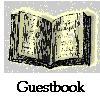







 |
 |
 |
 |
 |
 |
 |
 |
||
|
||||||||||||||||||
|
Games: |
||||||||||||||||||
|
Jared says: Q. [M]y approach to module writing is that they need to serve two purposes; entertain the DM and provide a useful reference during the game. Everything else is just fluff. (Purely my opinion, of which I have too many). What can I do to make a module a better piece of reference material? So far I've followed the basics ala DUNGEON Magazine submission guidelines and added: • Sidebars for each encounter detailing sensory (spot, listen, etc.), social (gather info, diplomacy), and magical (detect spells, scry, etc.) information. • Page references for cited rules, skills, feats, spells, etc. • Round-by-round action summaries for each combat sequence. • Tactical advice for more powerful NPCs and monsters. Is there anything you could add? A: Thanks for asking. I've long been interested in ways to give people the right information at the right time to make hobby games easier to play. Your additions all sound like good ones. On the topic of adventure formats, I always tell people to check out adventures from Hammerdog Games. They have an innovative presentation that gives you information at a glance. Supply an NPC glossary. In my roleplaying-focused adventure Wedding Bells (DUNGEON #89), there's a glossary of NPCs ("Dramatis Personae") so that the DM can keep track of who's who. It's bad to be in the middle of an adventure and forget what an NPC's name is, or get the name wrong. Rules reminders are also worthwhile (in addition to page references you mention). In my dungeon crawl Dungeon of the Fire Opal (DUNGEON #84), there's a sidebar on fighting a ghost that possesses PCs. It pulls rules together from various sources into one place for the DM's convenience. Provide spelled-up stats. What stats does the creature have once their spells are up? If a creature has a potion of bull's strength, what are its combat scores after it's drunk the potion. My spirit nagas have two sets of stats: raw and spelled up. Expand the stats. The stat block that's standard in printed products is great for getting all the information you might need into a small space, but it's not great for using as a reference in play. If you can afford more space, then just adding line breaks here and there is a boon. Sticking key information where a special ability is listed (e.g., poison damage and DCs) also helps. Places to track hit points and expendable spells or abilities are also useful. The stat format I worked up for battle sheets is an example of what I'm talking about. A good way to find out for yourself what makes modules better is to run some published modules yourself. Any time you get bogged down, think about what information would have helped you keep the game running, and that's what you should put in your own modules. —JoT
|
||||||||||||||||||